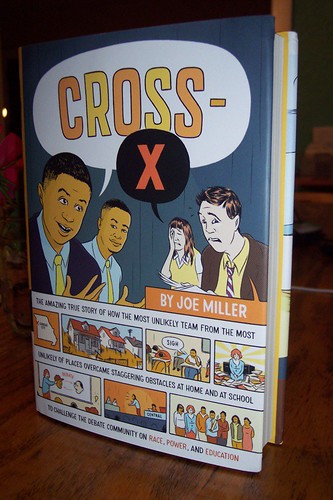Last Thursday, my university’s Center for Women’s Studies sponsored a screening of the incredible new documentary “Hip Hop: Beyond Beats and Rhymes” about, in director Byron Hurt’s words, “representations of manhood in hip hop culture.” The doc will be shown on PBS February 20 at 10 p.m. Check, as they say, local listings.
The turnout was great: about eighty students at a school typically thought of as attended mostly by commuters. And the conversation afterwards was as electrifying as anything I ever experienced in grad school, much less as an undergrad. The title of this blog entry comes from one of the many insightful observations made by students during the discussion.
In short, I was blown away.
We need more mainstream film and video projects like this one that bring together the voices of scholars, popular artists, fans, and activists to engage in conversations about popular culture–its creation, distribution, and consumption–and its impact. The New Yorks Times reports that “the documentary is being shown now at high schools, colleges and Boy’s Clubs, and in other forums, as part of an unusual public campaign sponsored by the Independent Television Service,” which has a webpage explaining the campaign. Amazing.
You know who also needs to see this documentary? People like this.
- The trailer on YouTube.
- Review at New York Times
- Interview with Hurt at Philadelphia Weekly.



 One of the best things about blogging is the way in which it pushes you to meet new people you would otherwise never know.
One of the best things about blogging is the way in which it pushes you to meet new people you would otherwise never know.